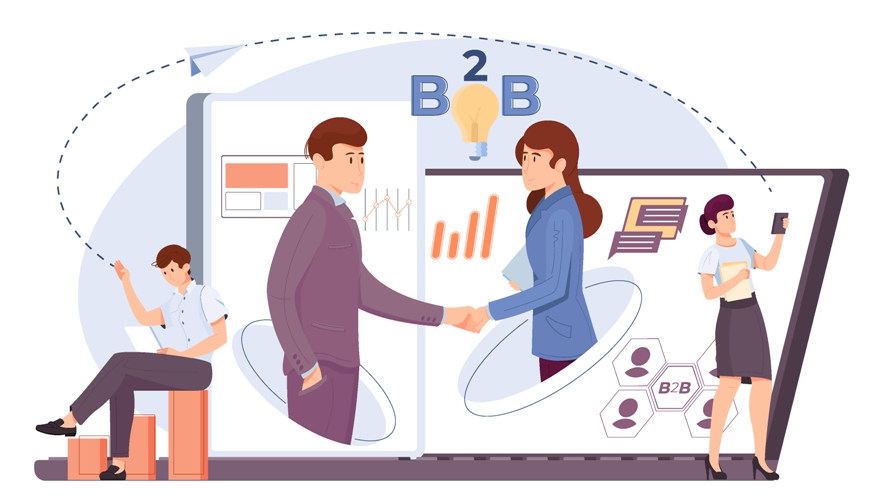B2B customer support servives in 2024 is all about providing a highly personalized and efficient experience that caters to the specific needs of businesses. Here are some key trends shaping the landscape:
Hyper-Personalization:
B2B buyers are no longer a monolith. Today’s support teams are expected to understand the different stakeholders within a customer company and tailor their communication accordingly. This might involve using a CRM system to track past interactions and preferences, or even leveraging AI to predict customer needs.
Digital-First Approach:
With more digital natives entering the B2B space, companies are offering multiple digital channels for customer service. This includes options like email, live chat, self-service portals, and even social media messaging.
Omnichannel Support:
The idea is to provide a seamless experience across all these channels. Customers should be able to switch between channels without having to repeat information or experience delays.
Focus on Customer Insights
By leveraging customer data from various touchpoints, B2B support teams can gain a deeper understanding of customer needs and challenges. This allows for proactive support, identifying potential issues before they arise, and tailoring solutions that address specific customer pain points. Analyzing customer feedback also helps improve the overall customer experience and product development.
Faster Response Times and 24/7 Availability:
B2B customers expect quick resolutions, with some studies indicating a desire for responses within 15 minutes. Companies are striving to meet these expectations by offering extended support hours or even 24/7 availability through chatbots.
Additionally, some innovative trends are emerging in 2024:
WhatsApp for B2B Communication: Some companies are utilizing WhatsApp CRMs to integrate this popular messaging platform into their customer support strategy. This allows for a more casual and familiar communication style, while still maintaining professionalism.
Predictive Customer Service: By analyzing customer data and past interactions, companies can anticipate potential issues and proactively reach out to customers with solutions.
By staying on top of these trends, B2B businesses can provide exceptional customer support that fosters loyalty and drives growth.

Here’s an example of a B2B customer support services interaction:
Company: Acme Corp, a supplier of cloud-based project management software
Customer: Beta Ltd, a marketing agency that uses Acme Corp’s software to manage client projects
Scenario: Beta Ltd is experiencing slow loading times within the Acme Corp software, impacting their team’s workflow.
Support Interaction:
- Beta Ltd submits a support ticket through Acme Corp’s online portal. The ticket details the issue and mentions the urgency due to project deadlines.
- An Acme Corp customer support agent with knowledge of marketing agency workflows acknowledges the ticket within an hour (as per their SLA) and gathers more information about the specific problems Beta Ltd is facing.
- The agent then troubleshoots the issue remotely, checking Beta Ltd’s account configuration and server connection.
- After identifying a glitch in the system specific to marketing agencies, the agent implements a temporary fix while escalating the issue to the development team for a permanent solution.
- Acme Corp keeps Beta Ltd updated on the progress throughout the day, ensuring they can continue working with minimal disruption.
- The development team resolves the glitch within 24 hours, and Acme Corp proactively reaches out to Beta Ltd to confirm the issue is fixed and answer any questions.
Key Points of a B2B Customer Support Interaction:
- Focus on business impact: B2B support understands that issues can affect a customer’s entire operation, so resolving them quickly is crucial.
- Technical expertise: B2B support agents often have in-depth knowledge of the product and the customer’s industry to effectively troubleshoot problems.
- Communication and follow-up: Clear and consistent communication throughout the process builds trust and keeps the customer informed.
This is just one example, and B2B customer support services can take many forms depending on the industry and specific product or service. However, the core principle remains the same: providing solutions that minimize disruption and ensure the customer’s business success.









